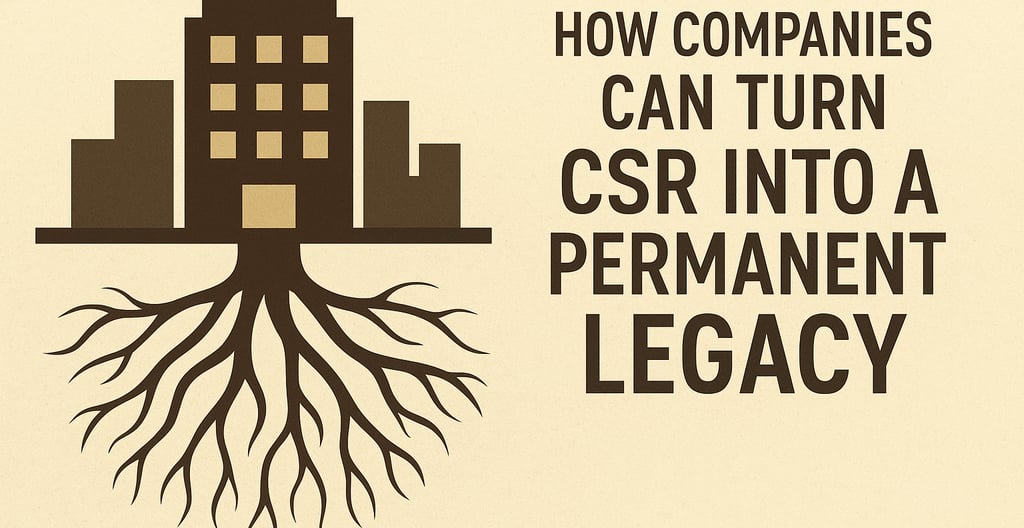How Companies Can Turn CSR Into a Permanent Legacy
Most corporate social responsibility (CSR) programs make a short-term impact - then fade. Learn how businesses can transform CSR into a lasting legacy through Infinite Generosity’s endowment model, ensuring that every contribution keeps creating value for generations.
PARTNERS IN PURPOSE
Rimantas Leimantas
9/27/20251 min read


For many companies, Corporate Social Responsibility (CSR) is treated as an annual expense - a budget line item allocated, spent, and forgotten until next year. An even sadder reality is that some companies don't even have a CSR line in their budget.
But what if CSR wasn’t just a cost… What if it was an asset - one that grows in value every year?
That’s what happens when CSR becomes legacy-focused instead of transaction-focused.
The Problem With Traditional CSR
Most CSR efforts suffer from three major issues:
Short-term visibility, short-term impact - A donation or sponsorship makes noise once but quickly fades from memory.
Budget pressure - CSR is seen as a cost center, making it easy to reduce when times are tough.
No lasting identity - Companies struggle to connect their brand to something meaningful and enduring.
The Solution: Turn CSR Into an Endowment
At Infinite Generosity Foundation, we help companies shift from spending to investing their impact.
Instead of donating €10,000 and watching it disappear…
A company can contribute that same €10,000 into a permanent giving fund. The capital is preserved, invested sustainably, and only the returns are distributed every year - forever.
That means:
✅ One contribution creates infinite impact
✅ CSR becomes a long-term brand pillar
✅ Employees and customers see it as vision, not compliance
From Obligation to Legacy
Imagine your company being known, not for what it makes, but for what it sustains.
Imagine your CSR budget building:
Scholarships every year
Environmental support every year
Community programs every year
All from one contribution.
CSR shouldn’t be a transaction. It should be a heritage.
And with the right structure, every company - no matter the size - can leave a legacy that outlives its balance sheet.